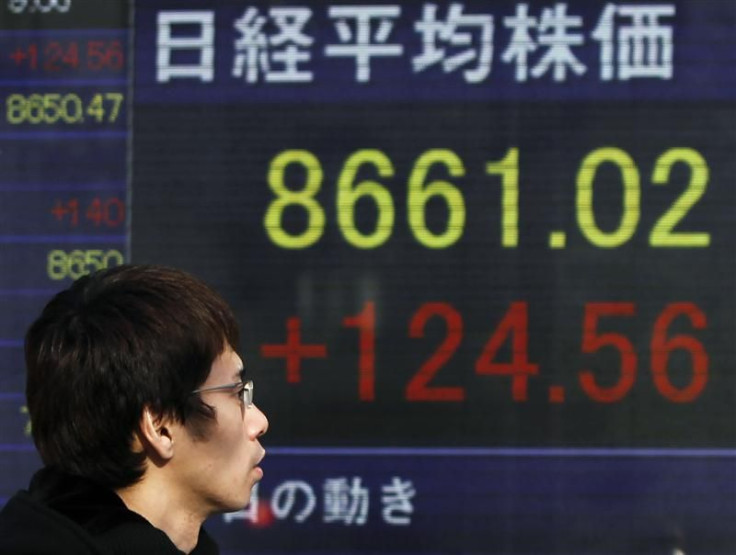Nikkei Rises But Euro Zone Concerns Persist

Japan's Nikkei 225 Stock Average rose Wednesday but maintained a cautious tone as investors have concerns of the persisting debt crisis looming over the euro zone.
While the Nikkei gained 0.33 percent or 28.43 points to 8,565.15, the Topix index fell 0.12 percent or 0.88 points to 723.49. Among major gainers were Fast Retailing Co (1.7 percent), Nippon Paper Group (1.5 percent) and Hitachi Ltd (1.3 percent).
The ups and downs of the situation in the euro zone are of great consequence to Japan as any escalation in the crisis will cause a global flight from risk and into safe haven assets such as the yen. If the situation in the euro zone worsens, there is a greater probability that the yen will appreciate, affecting Japan's export-based economy adversely.
Investors remained in a watchful mode due to concerns that the euro zone crisis could intensify again quickly, depending on the outcome of Greece's election Sunday. They are worried that the Greek exit from the euro zone, which, if it happens, could significantly disrupt global financial markets.
The rising borrowing costs of Spain and its troubled banking system have added to the debt crisis woes of the euro zone. Investors worry that Spain's poor economic outlook maintains concerns that the country will at some point require a government bailout as well.
On a positive note, investors are hoping that the Bank of Japan's (BOJ) Policy Board, which will conclude its two-day June meeting Friday, will announce further monetary easing measures. Market expectations of a coordinated response to the euro zone crisis by the major central banks were left unfulfilled last week following the meetings of the Governing Council of the European Central Bank and the Monetary Policy Committee of the Bank of England. So there is also concern that the BOJ may not ease policy unilaterally on euro zone concerns.
© Copyright IBTimes 2025. All rights reserved.





















